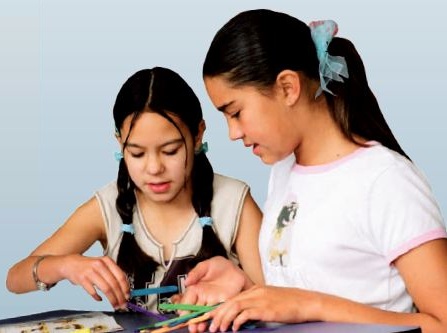Knowing how to converse is an important skill. Conversation is necessarily two-way communication. To participate in meaningful mathematical conversations, students need to be equipped with ways to express their own ideas. They also need to learn how to listen to and respond to the ideas of their peers.
This resource outlines ways to help students participate in mathematical conversations in pair, small-group, and classroom contexts.
Why is this important?
Active participation in mathematical conversations is important for the development of mathematical understanding.
Students cement their understanding by explaining what they have done and benefit from listening to other students describe how they approached a problem.
Students can be excluded from learning conversations for a variety of reasons. Some struggle to put their thoughts into words or lack the confidence to contribute. Others need more time than their peers to formulate a response and so can be overlooked.
Sometimes teachers don’t expect all their students to participate. If a student is reluctant to share their thinking, or struggles to put it into words, a well-intentioned teacher may avoid asking the student to contribute. However, by doing so, they position the student as a passive rather than active member of the learning community.
Most importantly, a student’s thinking needs to be visible for a teacher to identify misconceptions or to decide how to move the student’s thinking forward.
“By expressing their ideas, students provide their teachers with information about what they know and what they need to learn” (Effective Pedagogy in Mathematics/ Pāngarau BES, page 72).
Over the past six to seven weeks of focused maths instruction, I have come to realise how important the learning conversations with students are and that the skills of effective communication need to be taught, modelled, and practised to ensure students are confident and comfortable to participate in discussions. Learning conversations should take place in a supportive environment. The two students who asked the most questions and challenged ideas made the greatest progress, and I will be working to develop more learning conversation skills with my class. ALiM story (Matamata Intermediate) |
Read more
Click to download as a PDF (975KB).
